Curriculum
SCFS Core Courses
- SCFS 300 Survey of Sustainable Community Food Systems of Hawaiʻi
- SCFS 310 Introduction to Agroecology: The Science of Sustainable Agriculture
- SCFS 320 Theory and Practice of Sustainable Agriculture
- SCFS 335 Politics of Food
- SCFS 484 Agriculture, Food and Human Values
- (or SCFS 485 Cross-Cultural Environmental Ethics)
SCFS Senior Practicums
SCFS Upper Division Electives
- SCFS 340 Food Sovereignty, Nutrition & Human Well-Being Reconnecting Food, Nature and Community
- SCFS 345 Native Planters – Traditional Agriculture Systems of Hawaiʻi and the Pacific
- SCFS 350 Natural History of Bees, Beekeeping, and Honey Hunting
- SCFS 360 Survey of Literature on Agriculture, Food, and the Environment
- SCFS 370 Ahupuaʻa – Hawaiian Natural Resource Management from Mountain to Sea
- SCFS 385 Loko iʻa and Near Shore Fisheries Management of Hawaiʻi
- SCFS 415 Mahiʻai Kalo – Hawaiian Taro Production
- SCFS 455 Indigenous and Western Environmental Worldviews
SCFS Course Descriptions
SCFS Core Courses are designed to develop a systemic and multi-disciplinary understanding of the food system. Students study the history and development of agri-food systems, regionally, nationally and globally and its impacts on global environmental quality, human health and social and economic well-being. Pressing ecological and social issues in agriculture are addressed along with conceptions of ecological sustainability and social justice in the food system. Students develop a deep understanding of the most up-to-date scholarship in the transdisciplinary field of agricultural ecology and the political economy of the US and global agri-food system. The SCFS curriculum emphasizes the integration of theoretical knowledge with experiential and hands-on learning of sustainable agriculture practices in the field. Students also study a range of pressing ethical issues in food, agriculture and the environment in order to help them make more clear and ethically determined judgments. Details of each SCFS course can be found in the descriptions below.



SCFS 300 Survey of Sustainable Community Food Systems of Hawaiʻi
This course provides a multi-disciplinary analysis of the food and farming systems of Hawai’i. Drawing extensively from selected texts and the experiences of food systems professionals, the course examines the historical forces shaping the food and agricultural systems of Hawaiʻi, evaluates key examples of sustainable community food and agriculture initiatives in Honolulu County and the State, and identifies the key social, economic and political obstacles to the scaling of a more ecologically sustainable and socially equitable food and agriculture system for Hawaiʻi.
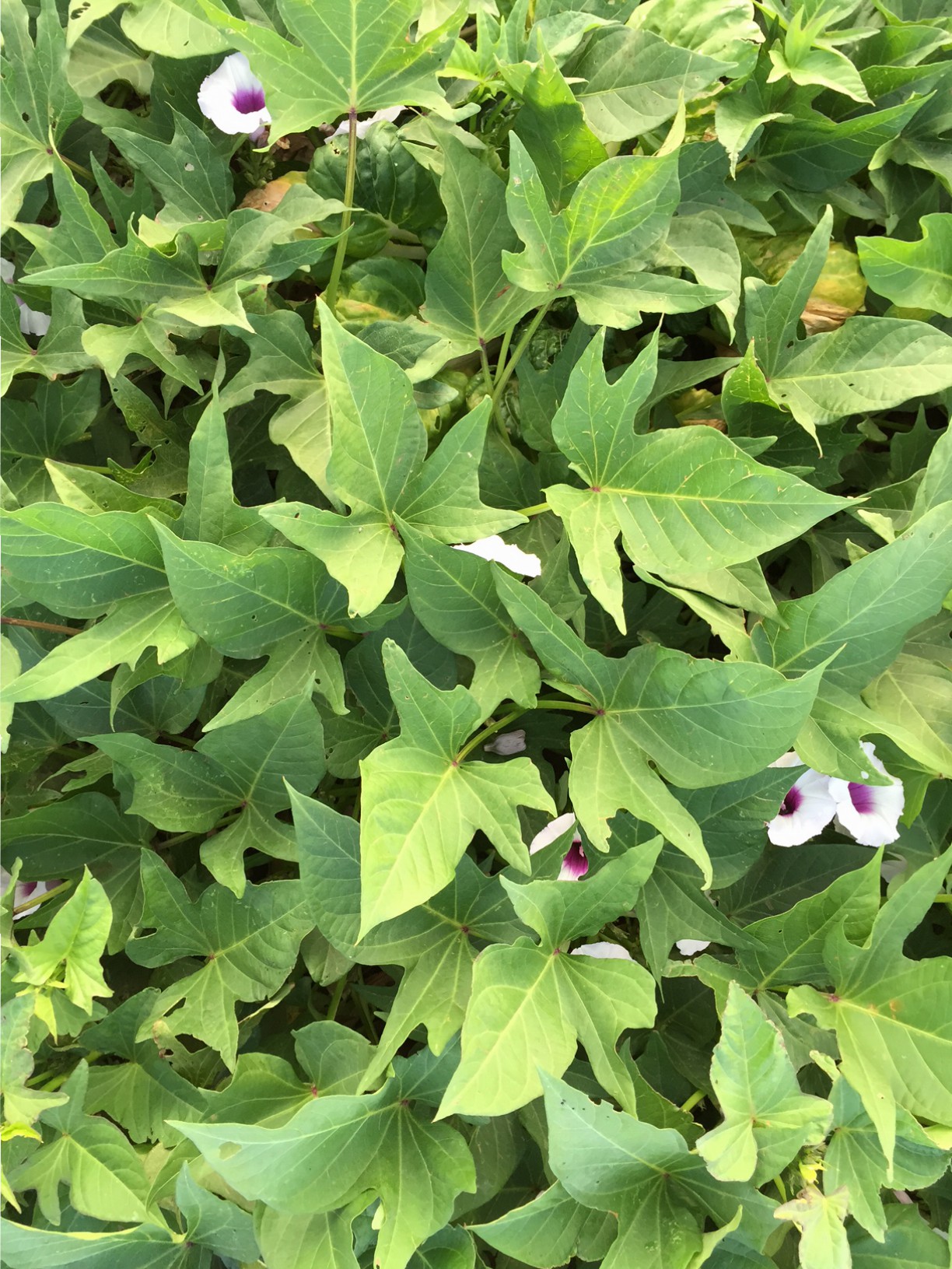
SCFS 310 Introduction to Agroecology: The Science of Sustainable Agriculture
This course provides a comprehensive analysis of global farming systems through the scientific discipline of agroecology. Agro-ecology (i.e. agriculture and ecology) is a scientific discipline that uses ecological theory and research methods to study, design and manage agricultural ecosystems that are productive and resource conserving. Topics addressed in SCFS 310 include: the history and development of modern agriculture; the ecological and social impacts and risks of modern agriculture; the academic field of agro-ecology; the agro-ecosystem concept; key biophysical processes taking place in agricultural ecosystems; the principles and practices of ecologically based soil fertility and pest management; the role of biodiversity in ecosystem functioning in agriculture; ecological indicators of agro-ecosystem sustainability; comparative analyses of the environmental performance of conventional and ecologically based agro-ecosystems; and socio-economic interactions with biophysical factors.


SCFS 320 Theory and Practice of Sustainable Agriculture
Explore the theory and practice of sustainable agriculture. Learn the fundamentals of horticulture science and the application of ecological principles to the design and management of small-scale horticultural systems for the tropics. Hands-on laboratory activities in the UHWO Student Organic Garden will focus on the development of practical horticultural skills, including: soil cultivation; compost production and use; irrigation; sexual and asexual propagation; and soil fertility and pest management practices.



SCFS/POLS 335 Politics of Food
In this course, students learn about the process of food production, how government and corporate involvement have changed the way society eats and how food has shaped global history. This class serves as a space to question assumptions about issues surrounding production and consumption, the links between agribusiness and the food people place on their tables.
SCFS 484 Agriculture Food and Human Values
Agriculture, Food and Human Values is designed to engage students in the study of a range of ethical positions and decision-making as it relates to food, agriculture and environment. Through the course, students will analyze and deliberate upon the relevance and applicability of a range of ethical traditions to contemporary ethical issues in food, agriculture and the environment in order to help them make more clear and ethically determined judgments. Key topics and themes addressed in the course include: the need for environmental ethics; animal rights; population and consumption; the ethics of pollution; food ethics; and anthropocentric and bio-centric world-views. The course will engage students in the process of ‘ethical discernment’ – the activity of determining the value and quality of a certain subject or event – to clarify the most fundamental of human questions: How am I to live in relationship to the natural world and its inhabitants?
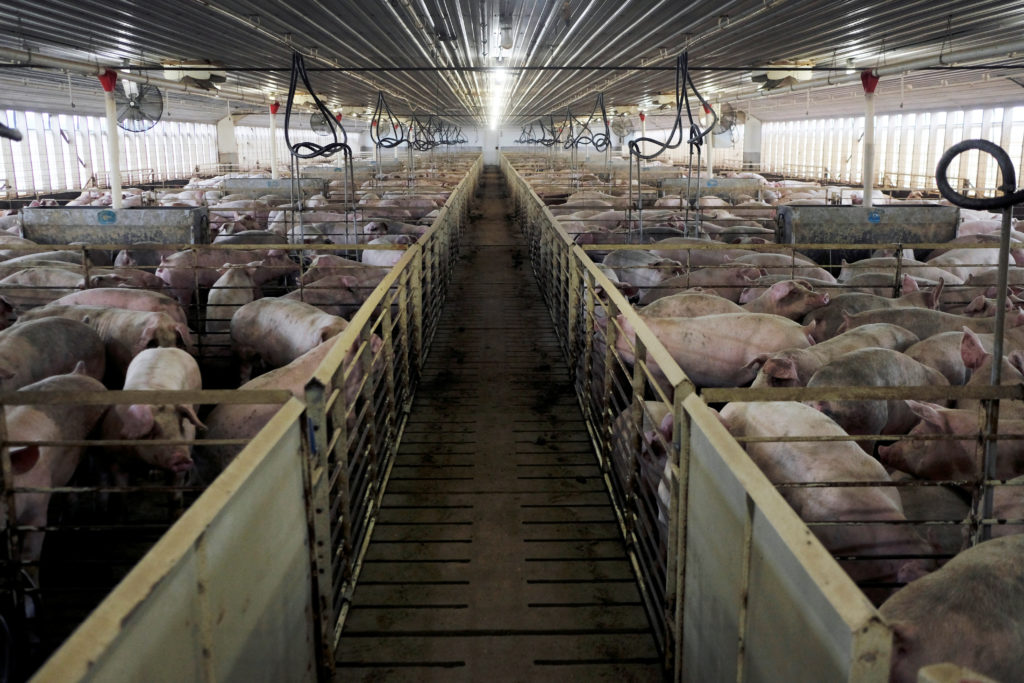
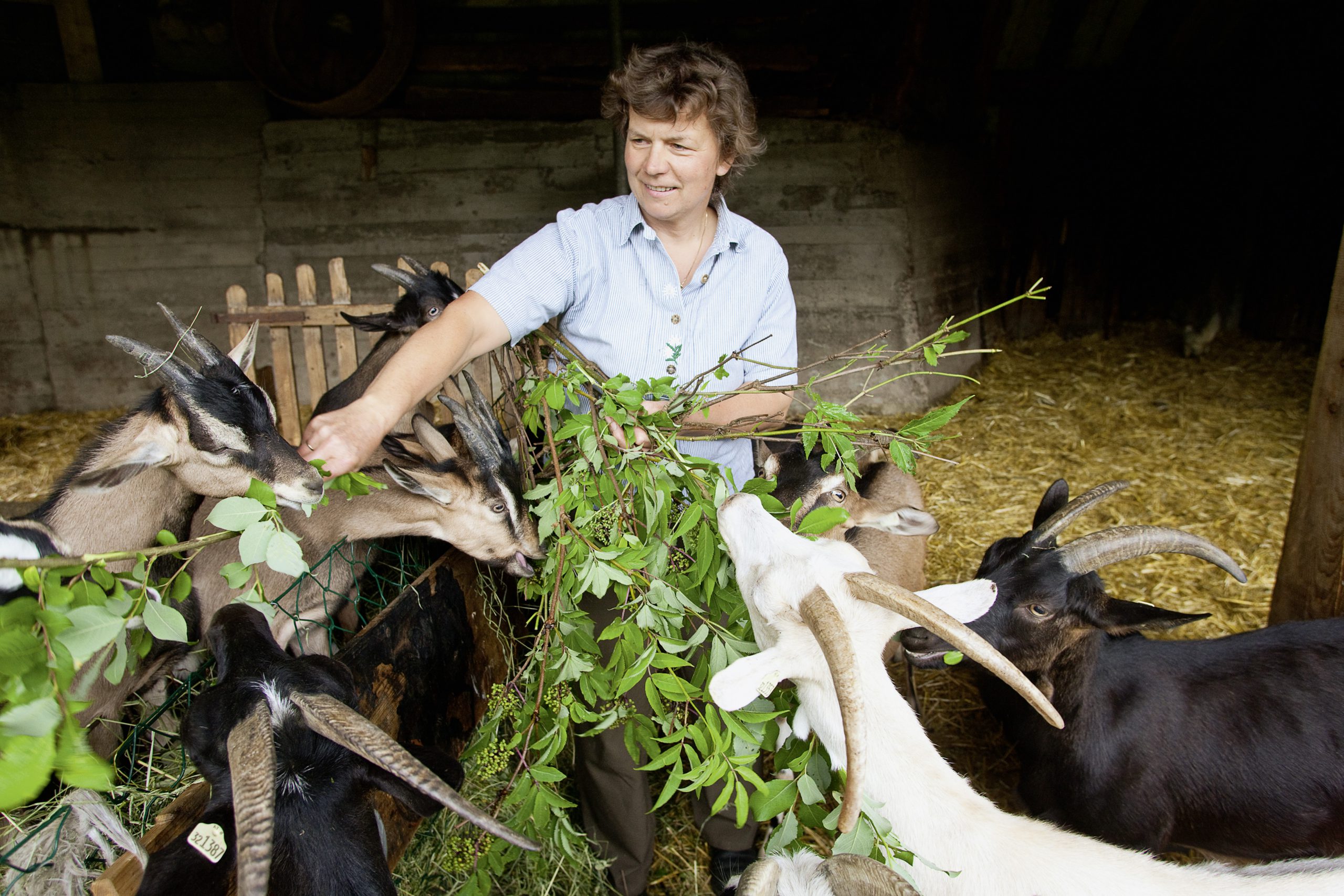

SCFS 485 Cross Cultural Environmental Ethics
Cross-Cultural Environmental Ethics is designed to engage students in the study of Comparative Environmental Ethics, surveying the diversity of moral and ethical traditions human cultures have developed in relationship to the non-human world. Throughout the course, students will analyze and deliberate upon the relevance and applicability of a range of ethical traditions to contemporary ethical issues to help them make ethically determined judgments. Key topics and themes addressed in the course include: the need for environmental ethics; anthropocentric and biocentric world views; the historical roots of Western European environmental values; main currents in contemporary Western environmental thought; environmental values in South Asian intellectual traditions; ecological insights of East Asian Buddhism; far Western environmental ethics of Polynesian and North American indigenous peoples; South American environmental philosophy; African bio-communitarianism; the environmental values inherent in Australian Dreamtime; postmodern ecological ethics; and traditional environmental ethics in action.
Senior Practicum Courses provide 1 full year (2 semesters) of experiential and hands-on learning in sustainable agriculture and food systems.
Students are placed in a practicum site of their choosing and are responsible for co-developing a set of personal learning outcomes with the instructor and site host. Through readings, observations, dialog, presentations and analysis, students develop a deeper understanding of the obstacles and opportunities to meaningful food system change toward ecological sustainability and social equity.
SCFS 490 Farming Systems Practicum
This course is designed to integrate the theory and practice of ecologically based agriculture through experiential and hands-on learning on commercial farms in Hawai’i and beyond. SCFS 490 is designed to meet all necessary criteria for a UHWO Oral Communications (OC) course.1 As such, a total of 55% of the final grade for this 3-credit course will be a function of the student’s oral communication activities: 30% of the final grade based on student performance in 7 oral presentations; 20% of final grade based on performance in the mid-term oral presentation; and 5% of the final grade is based on performance in the final oral presentation. The practicum requires students to work a minimum of 120 hours at the practicum site during the semester or summer session. The remaining 40 hours will be dedicated to classroom instruction, oral presentations, and discussion. Students will receive extensive instruction, coaching, models and instructor and student feedback using an oral communication evaluation rubric on each of the 7 required formal oral presentations. Students will be placed with a commercial organic (or equivalent) farm dedicated to low input, certified organic, ecologically-based and sustainable production practices. The chosen farm or ranch will be one of mutual interest for the student and faculty member. In addition to the general work responsibilities of assisting in the daily operation of the farm/ranch, each student will be assigned a specific role and set of responsibilities during their tenure at the farm enterprise. Key goals of the practicum are to: develop professional-level work skills and contacts; develop professional-level oral communications skills; facilitate the daily work of the organization/enterprise; develop an understanding of (and critically evaluate) the agronomic production practices and operations used by the enterprise in advancing sustainable farming systems; and develop critical reading, writing and public speaking skills. SCFS 490 is a requirement for graduation for all SCFS students. SCFS 490: Sustainable Agriculture Practicum is designed to meet all necessary criteria for a UHWO Oral Communications (OC) course.
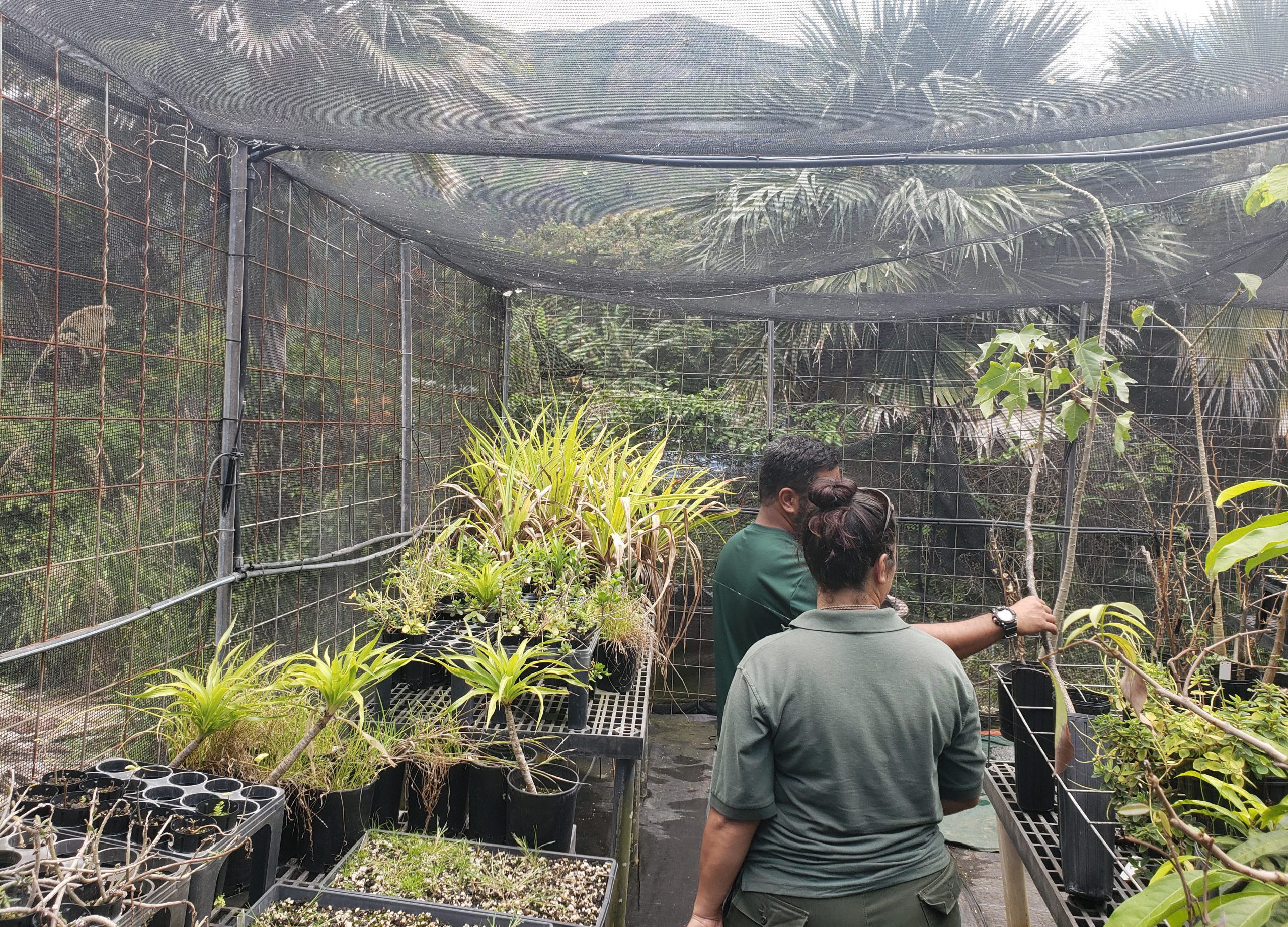
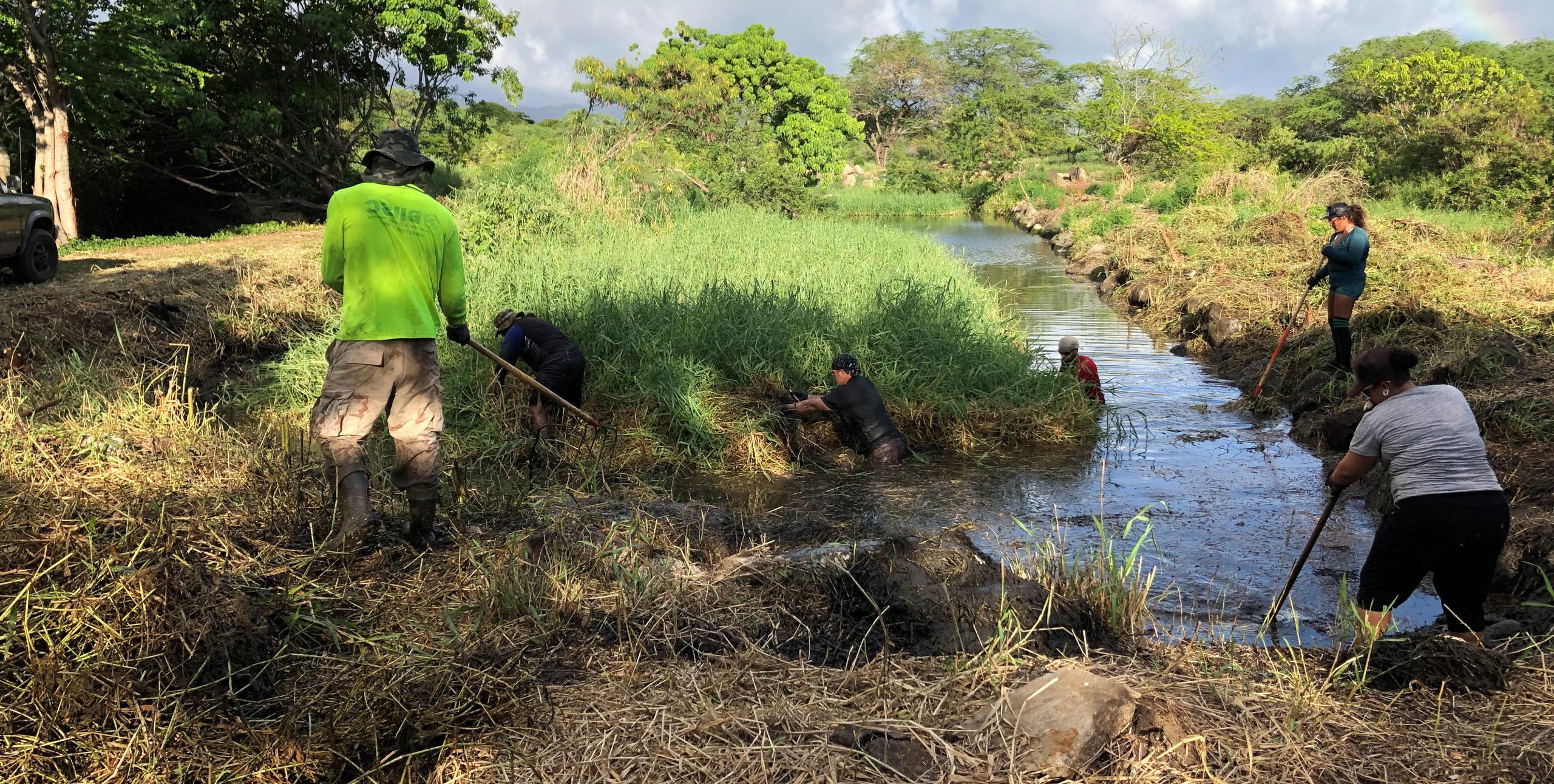
APSC 490 Senior Food Systems Practicum
The Senior Food Systems Practicum in the Sustainable and Community Food Systems Program is designed to integrate the theory and practice of food system transformation through experiential and hands-on learning in a professional setting. SCFS students are required to work a minimum of 120 hours at the practicum site during the semester under the direct supervision of the host. Students will be placed with an organization (of their choosing) dedicated to the advancement of sustainable food systems in the State of Hawai’i. The chosen organization must be a state or national non-profit public interest, education or environmental advocacy organization working to protect human health and the environment and promote sustainable food and agriculture. In addition to general work responsibilities, each student will be assigned a specific role and set of responsibilities during their tenure at the organization. Key goals of the practicum are to: develop professional work skills and contacts, facilitate the work of the organization, develop an understanding (and critically evaluate) the goals, objectives and strategies used by the organization to advance food systems change, achieve a set of 3-5 personal learning objectives defined by the student, and developing critical reading, writing and oral communications skills relevant to profession-level work in the food system. APSC 490X Senior Practicum – Sustainable Community Food Systems is designed to meet all necessary criteria for UHWO Writing Intensive (WI) course.


SCFS Upper Division Electives provide an opportunity for SCFS students to explore a range of food system topics of particular interest
Key topics and themes explored through the SCFS Upper Division Electives include: indigenous food sovereignty, traditional ecological knowledge, indigenous natural resources management, traditional food ways, indigenous farming systems of Hawaii, epidemiology, public health, apiculture, traditional fishpond management, applied food system research, global climate change and food system resilience, among others.
SCFS 340 Food Sovereignty, Nutrition & Human Well-Being Reconnecting Food, Nature and Community
This 3-unit survey and action research course provides a multi-disciplinary and critical analysis of the food system with special emphasis on the relationship between the food environment and diet-related health disparities. The course is designed as both an Oral Communication (OC) and Ethics (ETH) course. The class is structured to develop both formal oral communication skills while developing the ability to think critically and deliberate upon contemporary ethical issues in food and agriculture. The course provides a critical examination of how global restructuring of the agri-food system has reshaped food environments and dietary patterns, which serve as important social determinants of human health worldwide. The fundamentals of nutrition science will be emphasized along with the development of applied social science research skills. Students will be actively involved in conducting applied research on social determinants of community food security and diet-related health disparities in West Oʻahu.

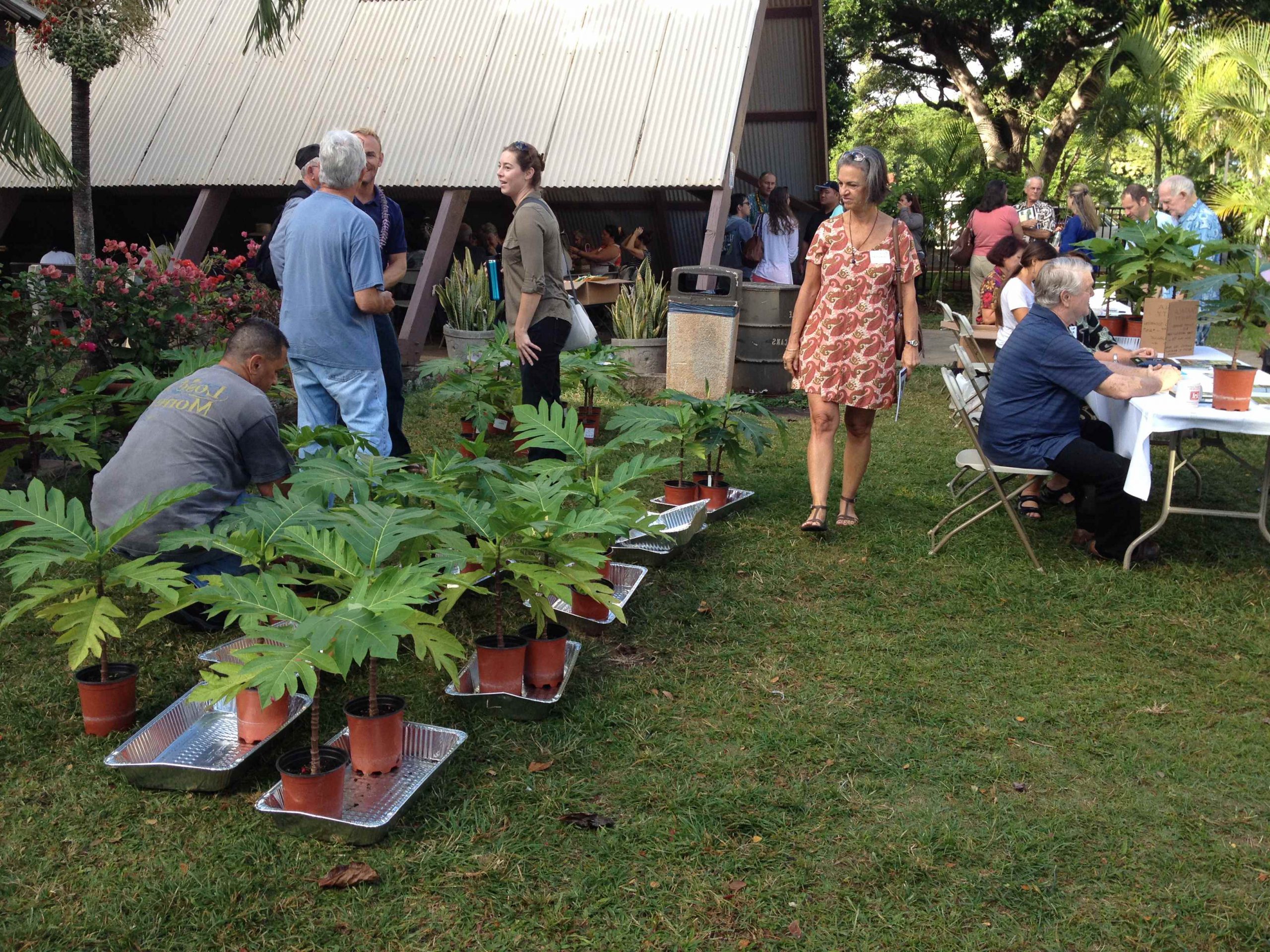
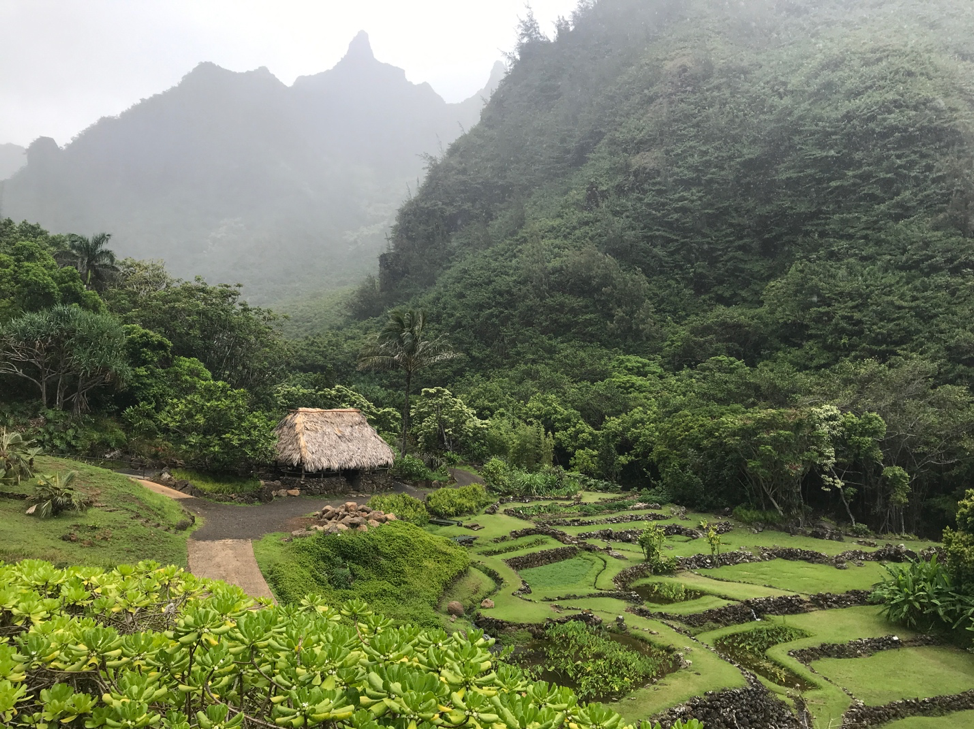
SCFS 345 Native Planters – Traditional Agriculture Systems of Hawaiʻi and the Pacific
This 3-unit lecture and field course provides an analysis of pre-and post-contact traditional food and farming systems of Hawai‘i and the Pacific Islands. Drawing extensively from selected texts, peer-reviewed literature in the natural and social sciences, and the experiences of practitioners of traditional foodways in Hawai‘i today, the course seeks to develop a deep understanding of the botany, horticulture, ecology, and culture of indigenous natural resources management systems of Hawai’i and the Pacific.
SCFS 350 Natural History of Bees, Beekeeping, and Honey Hunting
This 3-unit seminar and practicum provides a comprehensive overview of European honeybee (Apis mellifera) natural history, ecology and biogeography. The course combines readings, lectures and discussions with hands-on activities. Topics include: the natural history, evolution, behavior and ecology of apis and closely related bee taxa; anatomy and physiology of the European honeybee; honey-hunting and early domestication of honey producing bees; the evolution of beekeeping; modern beekeeping tools and techniques; modern agriculture, pesticide toxicity and impacts on wild and domestic pollinators; the current pollination crisis and risks to food security; principles and practices of applied beekeeping, including pest management; the role of biodiversity in ecosystem functioning in agriculture; pollinators as ecological indicators of agro-ecosystem sustainability. To conform to UHWO Writing Intensive (WI) standards, students will be assigned both informal and formal writing assignments.
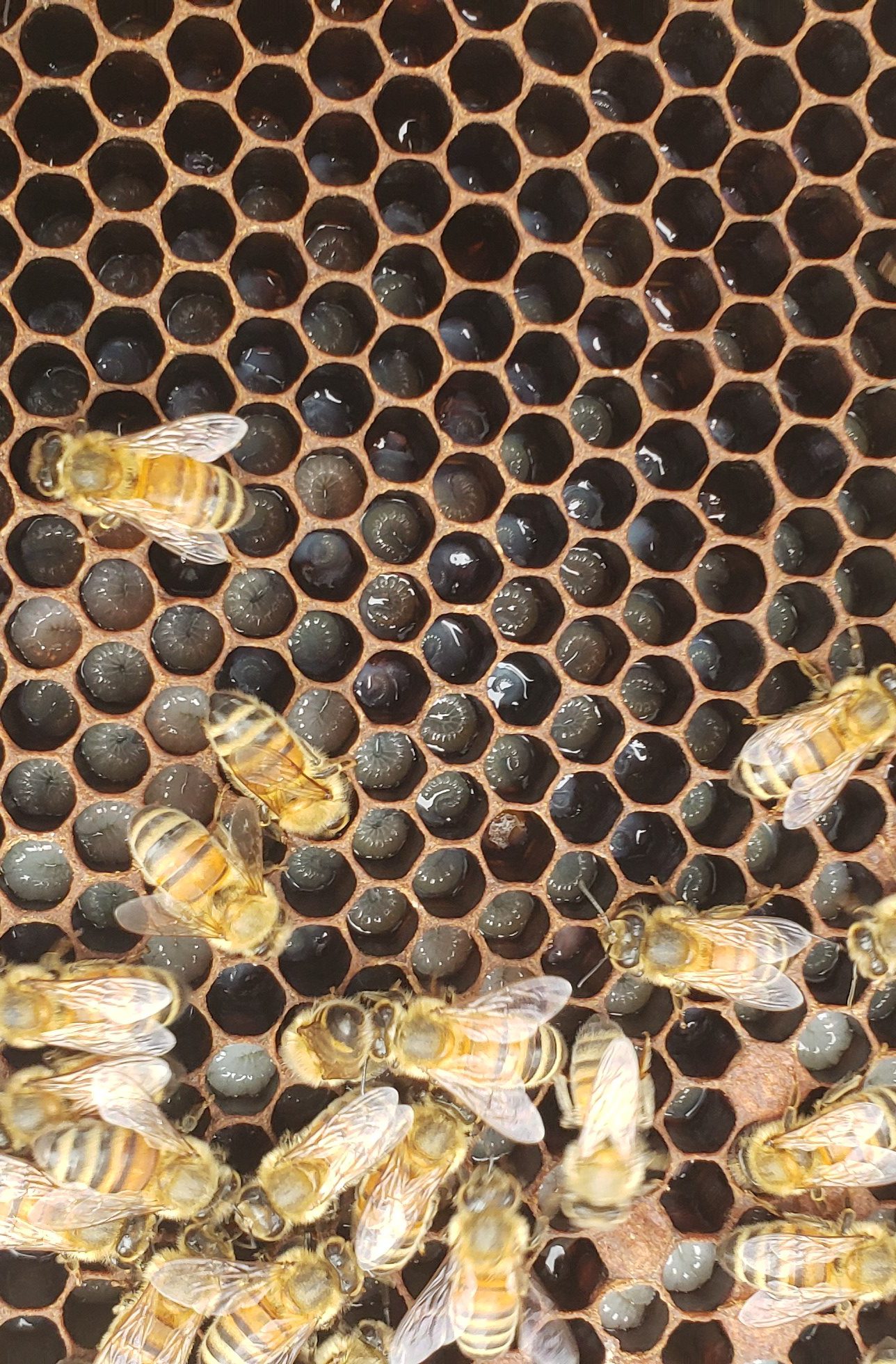
SCFS 360: Survey of Literature on Agriculture, Food and the Environment
This course is designed to engage students in the study of historical and contemporary ethical issues in food agriculture through a detailed analysis of key literary works. Drawing from fiction and non-fiction literature, students will be exposed to a critical retelling and analysis of the history and future of food and agriculture in America and beyond. The central social and ecological ethics addressed in each text will be methodically examined through lecture, in-class discussion, weekly writing assignments and the midterm and final papers. Key topics and themes addressed in the course include: narrative accounts of the lives of African Slaves in early US agriculture; reflections on the ecological (un)sustainability of early 20th Century agriculture in the US; first-person accounts and novels on the American Dustbowl; essays on the industrialization of food and the exploitation of laborers in American farm fields and meat packing houses; British and American colonialism, the loss of livelihoods and the social construction of poverty, famine and food security; critical essays and analysis of technological innovations in agriculture; the loss of traditional crop and livestock varieties; the growth and impacts of the fast food industry in the US; analytical and narrative accounts of the movements for food sovereignty and economic and cultural self-determination through food and agriculture; and return to a more intimate and personal connection to growing and preparing food. To conform to UHWO Ethics (ETH) requirements, a minimum of 18 hours of class time (40%) will be devoted to the discussion of contemporary social and ecological ethical issues presented in each text (see course syllabus for details). To conform to UHWO Writing Intensive (WI) standards, students will be assigned both informal and formal writing assignments. 75% of the course grade will be based on graded writing assignments.

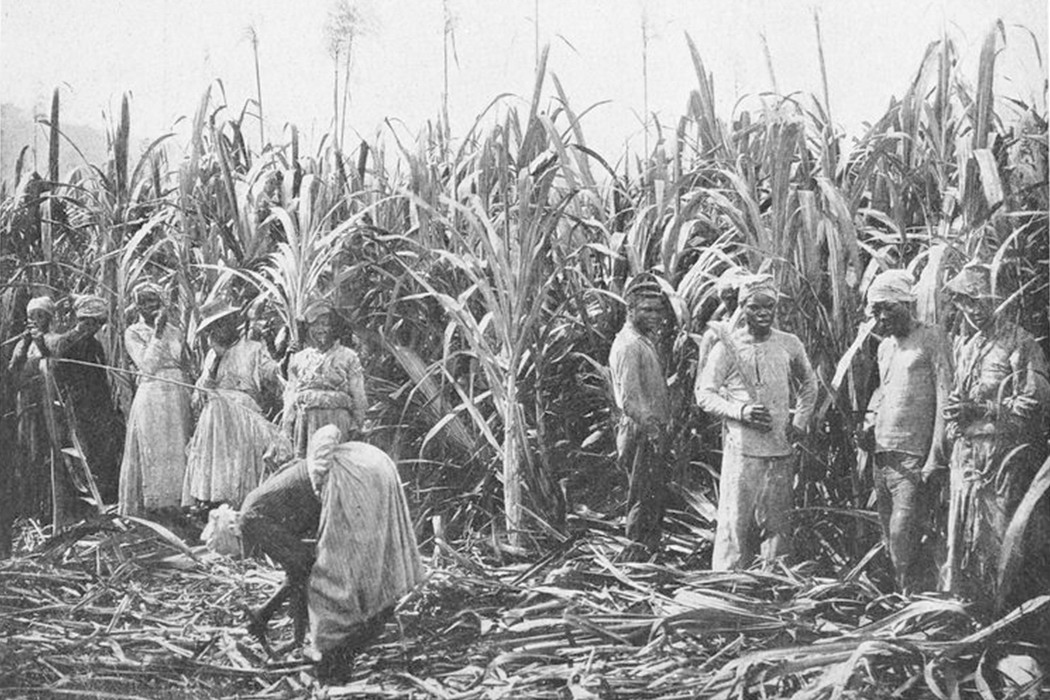
SCFS 370 Ahupuaʻa – Hawaiian Natural Resource Management from Mountain to Sea
This course provides an in-depth understanding of Hawaiian natural resource management through the study of connections found between land and sea. Exploring historic as well as current documentation and case studies students will learn about pre-European contact Hawaiian resource management. In addition, students will learn how Hawaiʻi-based environmental management practices are still alive today and can provide valuable insights into today’s multifaceted environmental issues. The course is designed to examine many different facets of Hawaiian natural resource understandings and knowledge. A few of the areas that will be included in this course include the importance of place names, moʻolelo, chant and songs, and environmental relationships as a means to exploring and incorporating diverse perspectives in science-based land management practices. In the process, students will become familiar with various methods of knowing a place and researching through Hawaiian sources online and in the library. It will help to lay a foundation of understanding through the concept of ahupuaʻa as it was developed by Hawaiian ancestors and set the stage for exploration into how this concept is still relevant to modern Hawaiians and contemporary mainstream society.



SCFS 385 Loko iʻa and Near Shore Fisheries Management of Hawaiʻi
This is 3-unit lecture and field course provides an analysis of pre-and post Euro-American contact of Hawaiian loko iʻa (fishponds) of Hawaiʻi. Through assigned readings, guest presentations from practitioners, and real-life first-hand experiences, this course seeks to teach the holistic and intricate workings of traditional Hawaiian loko iʻa. This course will begin with a historical perspective and end by examining how loko iʻa are relevant to helping fix today’s global issues of natural resource management and food security.
SCFS 415 Hawaiian Taro Production
This course will provide an in-depth understanding of Hawaiian loʻi agricultural practices both before and after Euro-American contact. Through readings, guest presenters, and field trips students will learn and experience first-hand the intricacies within Hawaiian cultural and scientific understandings within loʻi kalo. In addition, this course will examine how these understandings are as relevant today and, in the future, as they were in the past.


SCFS 455 Indigenous and Western Environmental Worldviews
This course introduces an understanding of how Traditional Ecological Knowledge (TEK) can shape education, on the ground management, and policies of natural resource management. Students will learn about Native American, Hawaiian, and Western European based environmental knowledge and how these beliefs that are shaped by the foundational values affect natural resource management. In addition, students will learn about how understanding diverse perspectives can help provide more encompassing answers to the complex multilevel environmental issues we are facing today, leading to a more sustainable future.